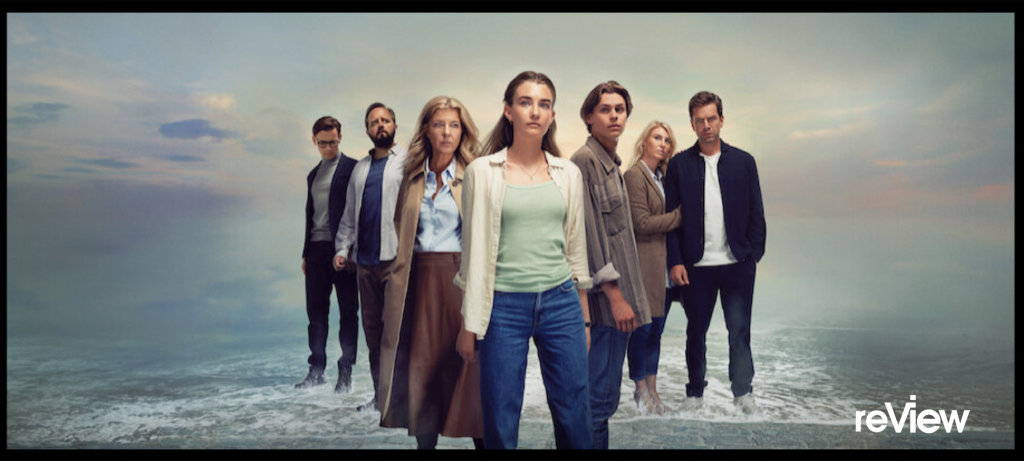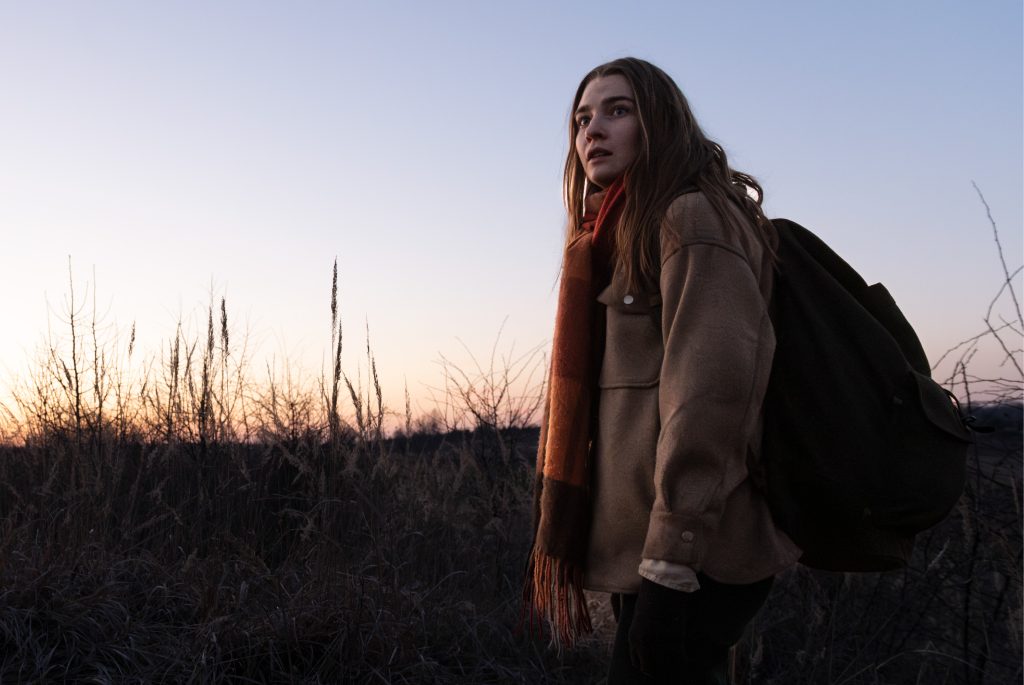
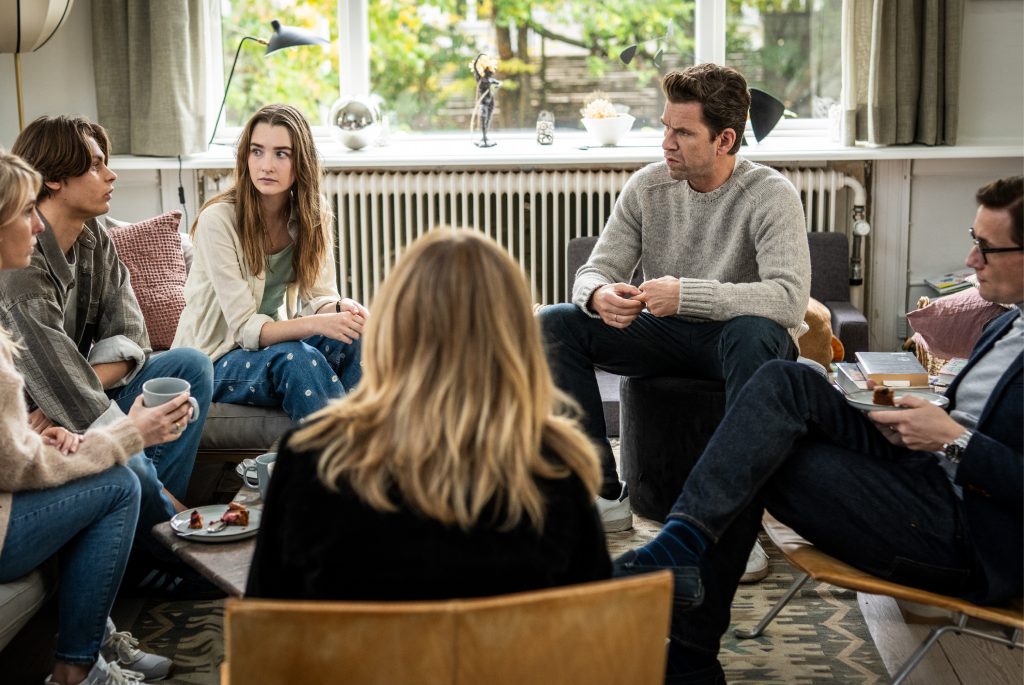
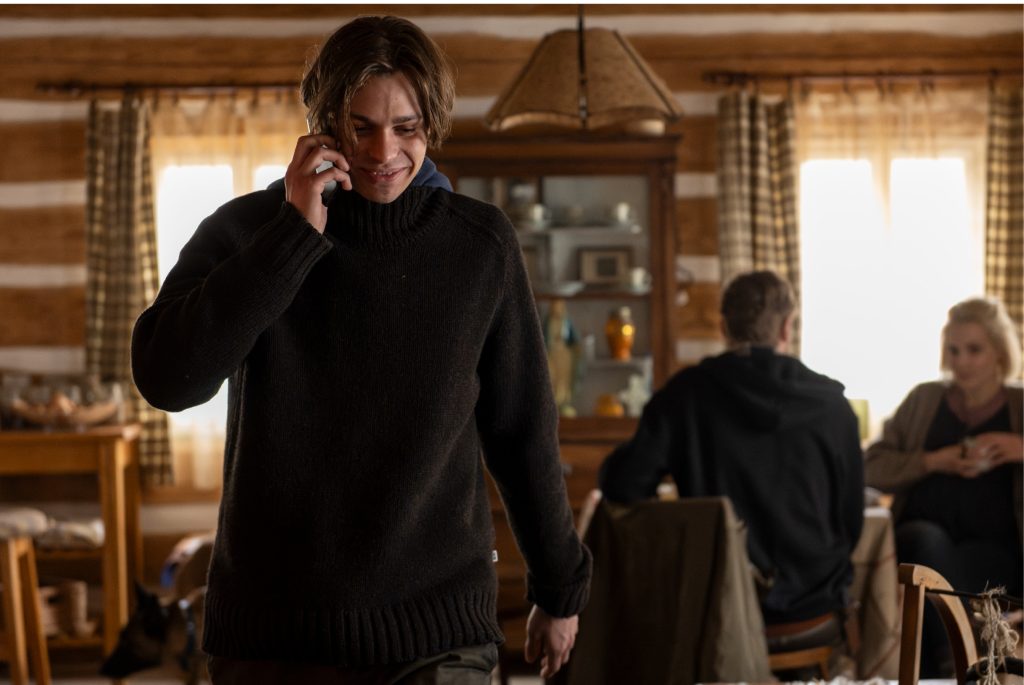
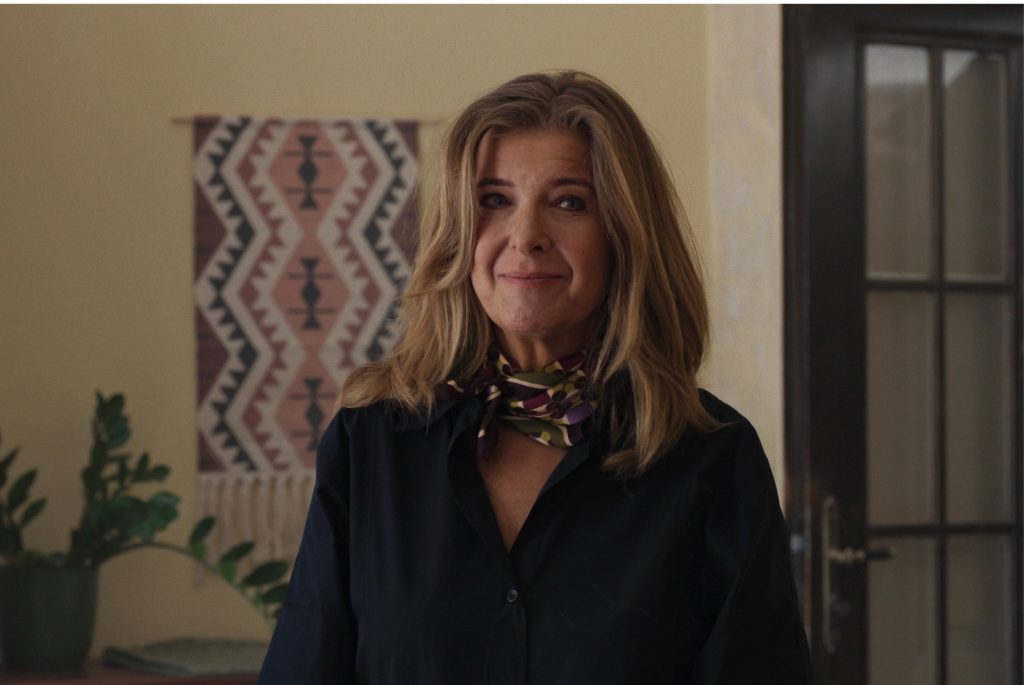
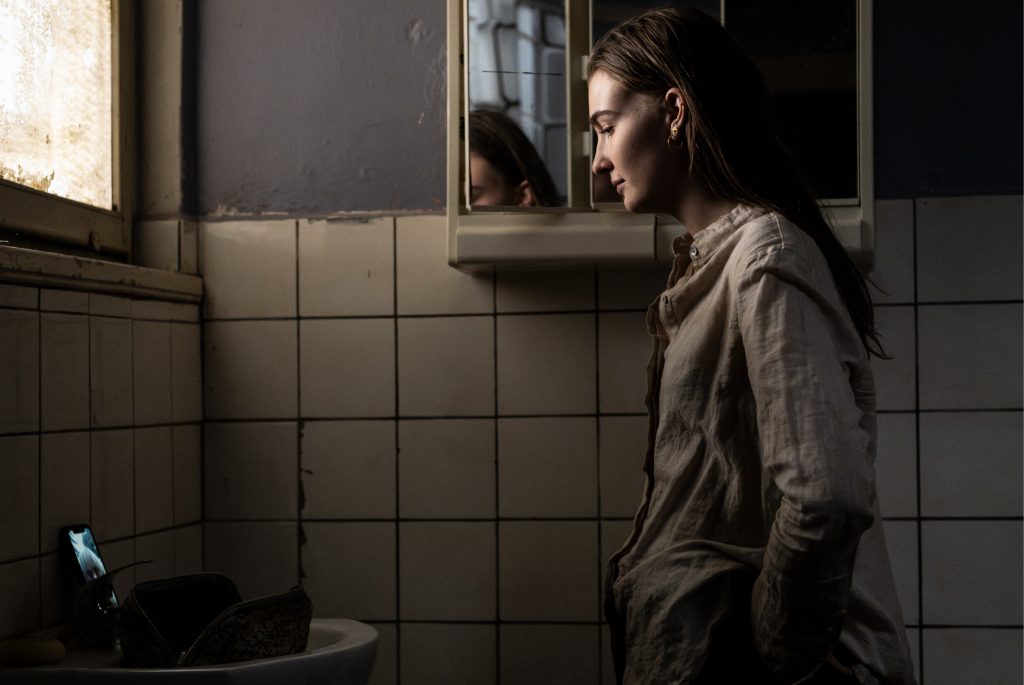
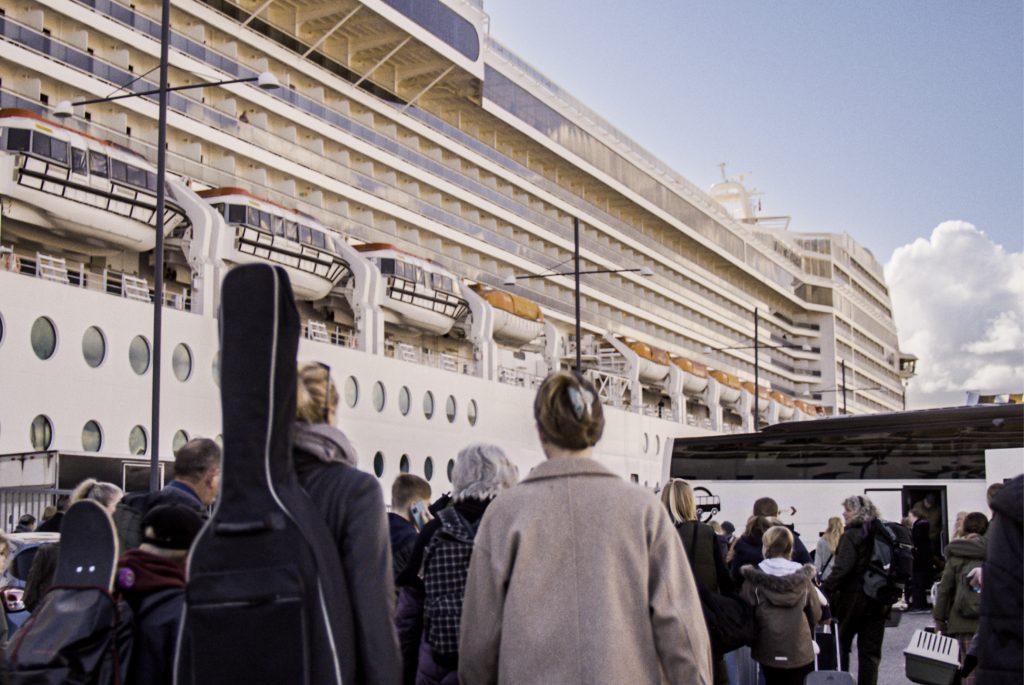
RATING
Director(s): Thomas Vinterberg
Country: Denmark
Author: Thomas Vinterberg
Actor(s): Amaryllis April Maltha August, Albert Rudbeck , Nikolaj Lie
Written by Tom Augustine.
It’s the kind of spine-chilling premise that manages to be both outlandish and terribly plausible — what happens to a country’s people, their very identity, when the country they live in simply ceases to exist? Of course, this isn’t a new notion: New Zealanders know that this is the fate facing many of our Pacific neighbours. The highest land level in Tuvalu is only 4.5 meters above sea level. The ongoing effects of climate change, and the generally pretty pathetic response of humankind to address their root causes — namely the actions of oil companies and tech , will impact the most vulnerable and unable to defend themselves first — soon, it is likely that Tuvalu will not exist at all. This is a different kind of violation to the traumas of colonialism, slavery, and apartheid — in those cases, the forcible removal of someone from their home was at least in part defined (if not counteracted) by the knowledge that that very home, the earth on which that home was, still exists: that in some sequence of events, there’s a possibility that one could set foot on it again. What does it do to the mind, the spirit, the cultural makeup of a nation’s people if that place isn’t there to return to? The scope of the existential dilemma is beyond the pale — it is comparable only to death, really, in the notion that a piece of you is forever gone in the people who you lose during your life. These heady, heavy questions are the ones that fuel Thomas Vinterberg’s Families Like Ours, a dystopian drama that is only barely removed from the world we live in right now.
Vinterberg won an Oscar recently for the charming, quietly devastating Another Round, a capper on a career that has morphed from nose-thumbing upstart as one of the architects of the Dogme ‘95 manifesto alongside Lars Von Trier to consistent, if markedly less-radical producer of handsome, occasionally provocative dramas. Where Von Trier has ventured further and further into eccentricity and idiosyncrasy, Vinterberg has established himself as a mainstay of the upper echelons of the respectable mainstream. This isn’t to diminish the power of his work — it may be less live-wire than Von Trier’s oeuvre, but there is a potency to much of it that is undeniable. His masterpiece may still be his Dogme ‘95 film Festen (AKA The Celebration), a nerve-jangling digital morass that beat Succession to the punch many years before that series claimed the cultural crown of television. The raw power of The Hunt, a deeply unsettling portrait of a false accusation and the lingering scars it leaves, itself precedes the seemingly endless discourse cycles that swirl around the notion of cancel culture, and foretells the apocalyptic moral panic of the Pizzagate/QAnon crowd when questions of sexual indiscretion toward children come into play — and the way it reflects as much upon those very people as the ones they are pitted against. These are deeply troubling conversations to have, ones that Vinterberg tends to approach with a scalpel, where Von Trier may approach with a shotgun. A foray into the world of television, for Vinterberg, allows him to turn his eye to a massive topic, one that, it seems, the general public have largely given up on litigating: the very real, seemingly unstoppable march of climate change. The slow boil of panic that one gets if they zoom out too far, considering the already-in-motion consequences of our actions, is the lifeblood of Families Like Ours — a concrete example of the prophetic notion that climate change is a tragedy we’ll see unfolding on our screens, until the day it is suddenly our turn.
Danish filmmaker Thomas Vinterberg turns his subtle, humanistic talents to television with this sweeping semi-dystopian drama, examining the practical and personal fallout of evacuating an entire country sinking into the ocean as a result of climate change. Moving, complex and deeply considered, it’s a portrait of a crisis all-too imaginable, handled with the grace of a truly accomplished artist.
The series’ immense cast features a raft of familiar faces from Vinterberg’s other works, like Another Round’s Magnus Millang and Thomas Bo Larsen and Festen’s Paprika Steen — but the centre of the series is an upper middle-class family headed by Jacob (Nikolaj Lie Kaas), Amalie (Helene Reingaard Neumann, Vinterberg’s real-life spouse) and particularly their teen daughter Laura, played by Amaryllis April August. The family’s proximity to Nikolaj (Esben Smed), Amalie’s brother, a government official, initially gives them prior warning that the evacuation announcement is on the way — encouraging them to sell all their assets (namely their house) before they become utterly worthless. Amidst the chaos, Laura (whose actress bears a striking resemblance to Saoirse Ronan) falls for Elias (Albert Rudbeck Lindhardt), a schoolmate and musician, causing her to be torn between following her family to relative safety in Paris or head to Finland with Elias and his bandmates. This is just one story within Families Like Us, though — the story continues to fold outward, introducing new branches of the family tree, each reacting to the sudden desperation of the closure of the country in different ways. Those wealthy enough to start new lives are encouraged to emigrate as soon as possible — the rest of Denmark is essentially placed on a mass refugee program, dispersing chaotically to neighbouring countries as varied as Romania, Poland, Belarus and beyond, many of whom are none too happy about the influx. A welcome thread at play in Families Like Ours is how perverse the idea of refugeedom really is, and how arbitrary the borders we put up around ourselves, both personally and literally, actually are. Imaginary lines and people with guns are all that separate one part of the world from another — are we really so egotistical as to believe this land belongs to us?
At first, the choice to focus on this relatively well-off family rankled me — wasn’t it entirely predictable that this attractive, lightly fragmented white family of means be the focus of the kind of event that will inevitably hit the poorest and most vulnerable the hardest? The first two episodes provided for review stick largely to the social circles of the family, and thus oscillate within the upper classes — but what of the underclass? Refugees from other nations that may have settled in Denmark once already? Those whose safety net was never assured? As Vinterberg’s methodical pace reveals more and more of the circumstances this family find themselves in, though, a picture begins to emerge, one that I can only imagine will be more fleshed out in the five episodes to come. Our understanding of the refugee crisis is not colour-blind — with the exception perhaps of Ukraine, in the modern day our perception of what a refugee looks like according to Western media is that of people of colour, from nations we designate as third world. The choice to focus on a bourgeois family suddenly thrust into refugeedom, then, is twofold: it subverts our expectations from the off, generating a natural, unmooring sensation, and it underlines the truth of the staggering existential crisis facing us all — the climate doesn’t care about your money. It doesn’t care about your status or your stately home. The truth is that humans of all shapes, sizes and colours will do whatever they can to reassure themselves they’re standing on solid ground, not realising they’re in quicksand. Nothing lasts forever and nothing is certain. In this regard, and in the structural approach of a gently accumulating ensemble built around a central family, Families Like Ours reminds me of one of the greatest of all series, The Leftovers. That masterpiece was a series of intense purpose and nuance that only revealed itself with time, after the initial shock of its premise had sunk in. It is about as high praise as a show can have to be compared to it.
Families Like Ours premieres on October 21 at 8:30 PM on Rialto Channel (Sky, Channel 39)
Catch up on Sky Go if you miss Episode One.

